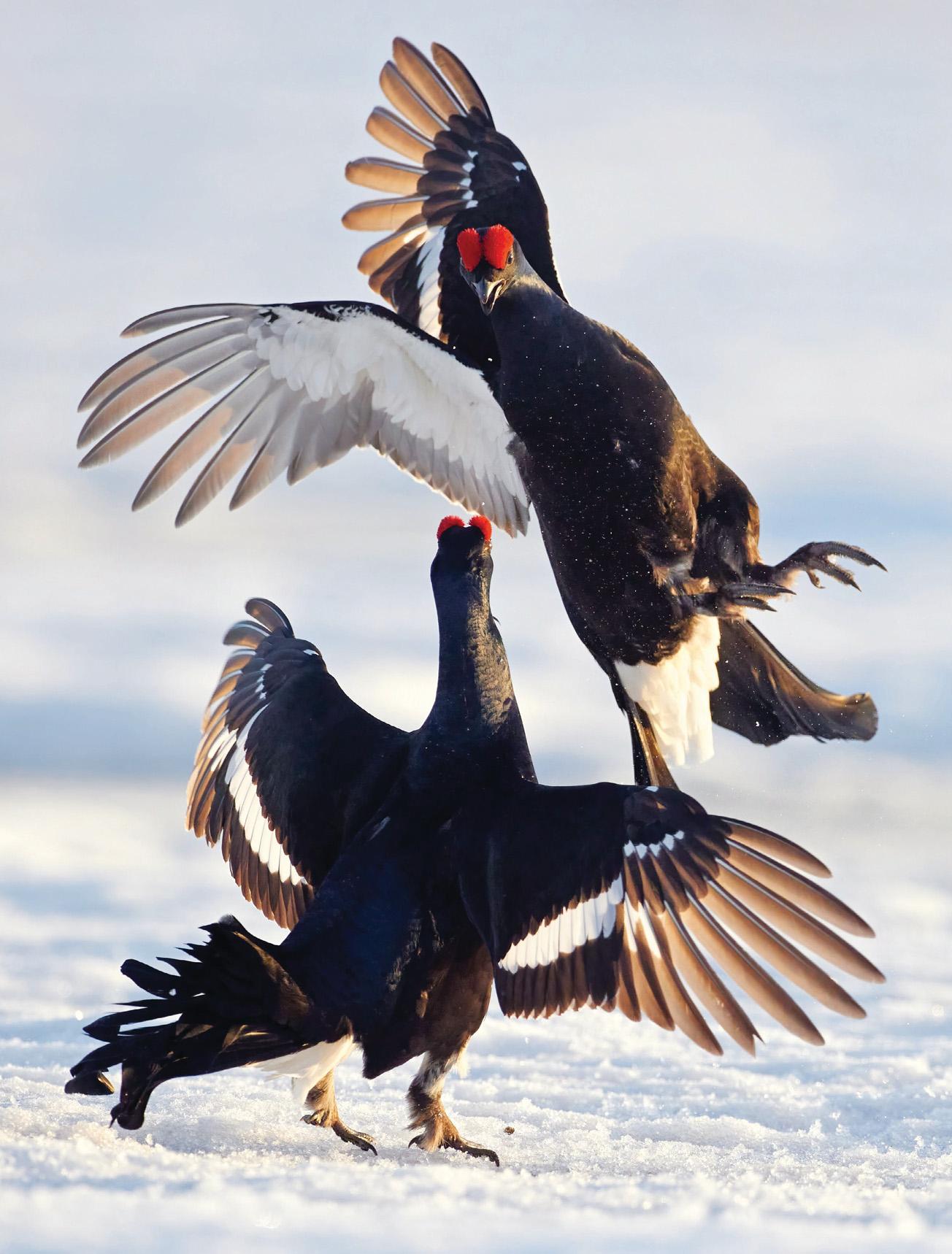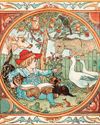Love on the wing

AS the US writer Nora Ephron wrote in the movie Heartburn, 'If you're looking for monogamy, you'd better marry a swan'. Some species of bird do, indeed, pair for life, yet other species including most songbirds are 'socially monogamous'. This means that, although they will form a pair for the entire breeding season, to help one another raise their young, the male (and, often, also the female) may also sneak off and try to mate with other birds.
In the male's case, this strategy is likely to mean he will have more offspring-even if he might never see some of them. For the female, mating with two or three males does not increase the number of chicks she can have, as she will still lay the same number of eggs. However, by mating with several males, she does benefit from having a range of young with different genetic qualities inherited from their fathers, some of which will be more likely to survive than others. This avoids, as it were, putting all her eggs in one basket.
Birds pair up by using two basic techniques. Songbirds, which make up more than half of all the world's bird species, have (as their name suggests) an attractive, tuneful song. This is almost always uttered by the male and serves two purposes: to attract and keep a female; and, at the same time, to warn nearby males to keep out of his territory and away from his mate.
Many larger birds, whose vocal talents are more limited, use a visual courtship display instead. This can be something quite basic, with the male simply showing off his attractive plumage to the female. Although it can also evolve into a truly memorable routine, in which both the male and female perform a complex series of dance moves, often exactly mirroring one another's movements. For humans, our own abilities to sing and dance were originally influenced by these incredible natural sounds and sights.
هذه القصة مأخوذة من طبعة February 08, 2023 من Country Life UK.
ابدأ النسخة التجريبية المجانية من Magzter GOLD لمدة 7 أيام للوصول إلى آلاف القصص المتميزة المنسقة وأكثر من 9,500 مجلة وصحيفة.
بالفعل مشترك ? تسجيل الدخول
هذه القصة مأخوذة من طبعة February 08, 2023 من Country Life UK.
ابدأ النسخة التجريبية المجانية من Magzter GOLD لمدة 7 أيام للوصول إلى آلاف القصص المتميزة المنسقة وأكثر من 9,500 مجلة وصحيفة.
بالفعل مشترك? تسجيل الدخول

My piece of Heaven
Eleven friends of COUNTRY LIFE pen a love letter to their small, yet oh so distinctive patches of the British Isles, from the big skies of the north Norfolk coast to the street art of Belfast, from the glens of Perthshire to the Exe estuary in Devon via the apple orchards of Herefordshire

Enthroning harmony
The search for harmony has informed The King's many pursuits since the 1980s. Clive Aslet explores how this idea is expressed in his architectural ventures

Do judge the book by its cover
Take a good dollop of Victorian innovation, add a fistful of classics, season it liberally with creative genius and you'll cook up the very British art of literary illustration. Carla Passino charts its history and discovers that it still thrives

Life is like a rainbow
Lovers’ lure, warning of death or simply a form of communication, the purpose of Nature’s paintbox may be curious, but its vibrant hues are always worth celebrating, eulogises John Lewis-Stempel

Trunk call
With the support of The King, a pioneering initiative is fighting to save majestic oaks, the age-old stalwarts of the British landscape, for generations to come, finds Julie Harding

A storm in a teacup
We drink tea every day, but are we doing it correctly? Who decided on the rules and do they really matter? Jonathon Jones reveals all

All hail the new Carolean Age
The Restoration of Charles II heralded an outstanding era of scientific discovery and a flowering of the Arts for which Britain has, rightly, continued to be famous. Here we suggest who, in the reign of Charles III, is continuing such work today

The power of the eclectic collector
Tomorrow's style-making collectors yearn for ownership of the greatest and the best across date and medium. They bring a crackling energy to connoisseurship and build collections of unpredictable breadth and depth. At this year's Treasure House Fair, a panel discussion hosted by COUNTRY LIFE will explore their impact on evolving perceptions and tastes

Kitchen garden cook French beans
For the pastry (or simply layer a few sheets of buttered filo pastry and skip straight to the filling)

Enduring heritage in hand
Discover the appeal of Chapman's bags when navigating town and country
